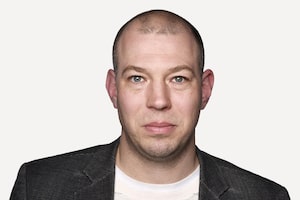SNC is locating its global business hub in London instead of Quebec.CHRISTINNE MUSCHI/Reuters
Before Syed Abdul Hossain, a former Bangladeshi communications minister, would consider approving SNC-Lavalin as the official overseer for his impoverished country's most important bridge project, he demanded to meet a "sada," or white-skinned, executive from Canada's largest engineering company, according to a letter written by a World Bank panel of experts.
So, on May 29, 2011, the letter says, a senior vice-president from SNC's Oakville, Ont., office, Kevin Wallace, flew to Dhaka with another SNC official, Ramesh Shah, where they sat down with the minister. After the meeting, World Bank investigators allege, two things happened: With the help of a code, Mr. Shah jotted down how much would go to the minister and to a senior bureaucrat as a bribe. SNC then went from being second in contention for the project to first.
This alleged sequence of events outlined in the letter offers a rare look into the mechanics of an alleged bribe – what the World Bank describes as a "criminal conspiracy" that stalled Bangladesh's most significant infrastructure project.
The letter, leaked to media in Dhaka and obtained by The Globe and Mail, is also the first detailed glimpse of the allegations against SNC in Bangladesh, one of four countries where the blue-chip Montreal company is being investigated on suspicion of using bribery to win contracts.
The project, known as the Padma Bridge, is to be more than six kilometres long, connecting underdeveloped southwest Bangladesh with the country's capital, Dhaka, as well as the main port. World Bank president Jim Yong Kim has said that, for Bangladeshis, the bridge "is a steel lifeline linking them to opportunity."
But the World Bank withdrew its $1.2-billion loan for the project after it discovered evidence of the alleged plan to bribe Mr. Hossain and others. As the bank was considering whether to reinstate the loan, it enlisted a panel of anti-corruption experts – led by a former prosecutor at the International Criminal Court, Luis Moreno Ocampo – to review whether Bangladesh and its Anti-Corruption Commission were responding appropriately to the allegations.
In January, Mr. Ocampo concluded in a stinging letter that they are not – and outlined precisely why the bank believes the authorities should charge the minister with trying to negotiate an alleged payout from SNC. The Anti-Corruption Commission has laid charges against numerous bureaucrats, as well as three SNC-Lavalin officials, including Mr. Wallace, alleged to have been part of the scheme – but not Mr. Hossain.
In his letter, Mr. Ocampo alleges that, before Mr. Wallace's trip to Dhaka, Bangladeshi public servants were feeding SNC confidential information about the status of its bid to oversee the bridge building. At the start of the process, the evaluation committee had placed SNC behind the Halcrow Group Ltd., a British engineering consultancy firm.
"This result greatly concerned SNC-Lavalin," Mr. Ocampo wrote.
A local consultant hired by SNC who is not named in the letter regularly kept Mr. Wallace abreast of the bid process, and "convinced Mr. Wallace of the need to visit Bangladesh 'to seal' the project," the letter states. After that pivotal meeting on May 29, 2011, SNC's prospects changed dramatically, Mr. Ocampo wrote.
First, Mr. Shah jotted down in a notepad percentages next to the names of Mr. Hossain and the executive secretary of the Bangladeshi Bridge Authority, Mohammed Mosharraf Hossain Bhuiyan, Mr. Ocampo wrote. Mr. Shah's alleged note used the acronym PCC, which, Mr. Ocampo writes, "is a euphemism used by SNC-Lavalin to indicate the costs of the bribes to be paid."
Then, a little more than two weeks after the meeting, the Bangladeshi Bridge Authority submitted a report to the World Bank, recommending SNC because of "issues/concerns" over Halcrow's proposals, Mr. Ocampo wrote.
The allegations have not been proven in court. The World Bank referred the matter to the RCMP, which has charged Mr. Shah and another former SNC official, Mohammed Ismail, under Canada's Corruption of Foreign Public Officials Act. There is no evidence that any money changed hands – the contract was never awarded – but the mere offer of a bribe is also an offence under Canadian law. Lawyers for Mr. Shah and Mr. Ismail declined to comment.
Mr. Wallace has not been accused of any wrongdoing in Canada. In December, he left SNC, where he had been president of the company's wholly owned subsidiary, Candu Energy Inc. He did not respond to a request for comment.
SNC-Lavalin said it has been co-operating with the World Bank. "We are eager to see anyone responsible for wrongdoing brought to justice," said Leslie Quinton, SNC's spokeswoman.
The World Bank continues to withhold the loan, which has prompted the Bangladeshi government to tell its citizens that it will find another way to finance the project. In his letter to the Anti-Corruption Commission, Mr. Ocampo said the argument that investigators had offered about why the minister was not charged – that it would cause a political upheaval in Dhaka – "was deeply disturbing."
The authorities, Mr. Ocampo wrote, "must proceed to investigate irrespective of a person's political status or possible political ramifications."
 Greg McArthur
Greg McArthur